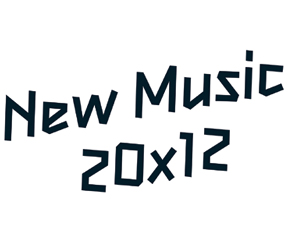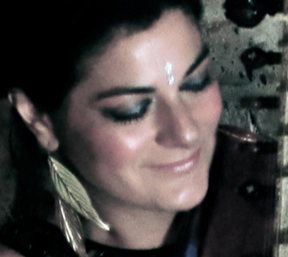Sheema Mukherjee, commissioned by The Imagined Village
‘Bending The Dark’
PRS for Music Foundation: What impact do you think New Music 20×12 will have on your work?
Sheema Mukherjee: Since being one of the chosen composers for this project, I have begun to consider the effect that such a global event has on both communities and the individual. I work fundamentally from a ‘raga’ perspective which means in Sanskrit ‘to colour the emotion’, and the Olympics will touch billions. It is inspirational that generations of people with their various traditions in a multicultural UK are feeling the excitement from the world competing on a level playing field. I feel pride, pleasure and also challenged to write a piece which encorporates the great English musical traditions with the other cultures present in the UK today.
The Imagined Village has achieved considerable recognition within UK musical culture with acclaimed festival, TV and radio performances. It seems like a brilliant opportunity to expand the horizons of this unique band through this special commission. We hope to perform it at Womad 2012 and on our April 2012 tour, giving a special premier performance in Bridport, West Dorset where the band’s recording studio is based.
I hope it will have the same kind of impact as the 1998 Imagined Village track ‘Cold Hailey Rainey Night’ that got us a Radio 2 Folk award, a TV appearance on Jules Holland, a Front Row feature and over 112,000 Youtube hits.
PRSF: Tell us the story of how and why you joined forces with the performers you are working with on this project.
SM: Seven years ago at the conception of The Imagined Village, Simon Emmerson invited me to work on a couple of tracks. I consequently met Martin and Eliza Carthy and started learning English traditional tunes. With it’s diverse rhythms and rich melodies I began to notice similarities to the ‘gaat’ section of Indian classical music. Gaats are also passed down aurally over the generations, being interpreted by each musician in his/her time. The other musicians In The Imagined Village are innovators within their fields and the band also has an amazing range of instrumentation, including a rhythm section that can move comfortably from traditional musical idioms to modern electronica.
The Imagined Village now has more than 4 years of live performing and recording experience providing an amazing group dynamic and shared musical language. It just seems like a natural progression to write this commission for this very special band.
PRSF: How are you going to approach creating your new work? What kinds of creative input will the performers and community you are working with have on your work?
SM: I will be working individually and collectively with members of the group, who will bring to the table their ideas and community influences. I have already started the writing process on my own and now have enough ideas to circulate amongst the group. This collaborative process has become the bench mark for the band’s creative dynamic and takes place across a variety of platforms involving our respective studios and workstations: some times we exchange ideas in face to face recording and writing sessions and sometimes though file exchanges over the internet.
By November I hope to get the full band of 11 people together to start consolidation of these auditioned ideas. I will then have a good idea of the compositional structure, key themes and arrangement details of the commission and how it will work as a live performance. Everything the Imagined Village does has the benefit of a group collaboration giving the music a very personal and ‘played in’ feel.
PRSF: Who do you hope to reach through the creation and performance of this work and what do you hope they’ll take away with them?
SM: I am hoping that my composition will show the dynamic and evolving nature of English Roots music within the immediate reality and dynamic of an existing, gigging band. In writing for a band set up such as this, I hope to show the UK public the way our country has become one of the key international environments for these cross-cultural collaborations. I hope that the music will be both inspiring on a deeply personal level but also involve an inclusive, uplifting performance that celebrates the diversity that makes UK culture so special.
In taking the performance on the road I hope we will play to over 10,000 people of all ages and racial backgrounds as we did on our last album tour in February 2010. I hope people will find the piece melismatic and that it will also show the beauty of diversity, with acceptance and respect.
PRSF: Where do you draw your inspiration and influences? Which creator – musical or otherwise – do you most admire?
SM: Nikhil Banerjee, emotive player and melodic master (inspiration/influences). Bill Bojangles Robinson – (most admire).
PRSF: Which Olympic and/or Paralympic Games will you be seeing in 2012? What was your best/favourite sport when you were growing up?
SM: Gymnastics & 400 metres
A message from commissioning organisation The Imagined Village
Composer Sheema Mukherjee’s piece ‘Bending The Dark’ will be written from the point of view of a second generation immigrant tracing the path of the Indian diaspora across continents. The new piece will be performed by The Imagined Village, a band that unites some of England’s finest traditional musicians alongside leading figures on the UK Asian and alternative electronica music scene.


